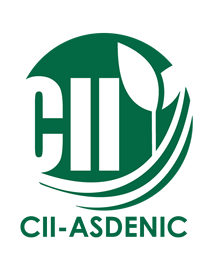ASDENIC
Research Activities
We conducted 70 semi-structured interviews with potential beneficiaries in 6 communities: Daraili, Bramadero, Buena Vista, El Pegador, Condega, and Las Sabanas. We administered 37 written surveys of 20 questions and conducted two focus groups with a total of 10 participants, all in rural communities. We met with 15 key informants from local water nonprofits, local governmental organizations, and ASDENIC employees to gather contextual knowledge on the history and infrastructure of water purification efforts. These activities were all conducted in Spanish. Finally, we took 24 water samples from public and private water taps in rural, peri-urban, and urban areas to test levels of bacterial contamination. Our interviews, surveys, meetings, and tests yielded a blend of qualitative and quantitative data on the current drinking water situation from an environmental, economic, and public health perspective.
Key Findings:
-
- There is a need. Community water committees are in charge of the operation, management, and treatment of local water sources. Although they are crucial to their communities, they are not fully effective at treating the water according to water tests. Over 90% of tests, at private and public waterpoints, showed levels of coliform that exceeded WHO guidelines for acceptable drinking water. The vast majority of participants interviewed are worried about the quality of their water with a smaller, yet still significant portion stating that someone in their family was experiencing diarrheal issues related to their water.
- There is a market. A majority of individuals we interviewed stated they would be willing to pay for a filter that would provide clean water. The major inhibiting factors that prevent others from buying a filter are price and lack of availability of products.

Team
2016
Social Enterprise:
ASDENIC
Fellows:
David Hong
Public Health Science
Elia Kazemi
Environmental Science
Aidan O’Neill
Economics
Faculty Research Mentors:
Dr. Chris Bacon, Environmental Studies and Science
Deliverables
Recommendations to ASDENIC for a potential water social enterprise. A comprehensive report of our research findings, translated in both English and Spanish, will inform ASDENIC of possible next steps towards a water social enterprise. This report includes an analysis of the drinking water market condition in the Segovia region in Northern Nicaragua, a detailed needs assessment–including a water quality report–and recommendations to ASDENIC for a potential water social enterprise based on our key findings.
Replication Market Research Manual for the Miller Center. Our second deliverable is a report to the Miller Center which provides a step-by-step template of our research methods and related actions, which will serve as a validated toolkit for analyzing beneficiary needs, attitudes, and other conditions toward a viable social enterprise solution in other markets. The objective of this report is to serve as a guide to future research partners to replicate our first deliverable in other geographic locations with a potential for a water social enterprise.
